Petty but valid reasons to break up a relationship(and save your mental health)
We need to normalise breaking up for little reasons.

Little reasons (and rational, simplistic ones) are often the best reasons for everything in life, and that's especially true when it comes to break ups.
Our survival instinct doesn’t always speak to us through dramatic and spectacular premonitions, or even via an unmistakable physical discomfort. Sometimes the clues are subtler and may come disguised as a petty annoyance one can’t shake off.
A thinker that I fail to recall right now said something along the lines of “when you are in love with someone, their very flaws are endearing: when you are out of love, even their finest traits irritate you”. If someone’s quirks aggravate you to no end, it’s probably a hunch. Chances are that you ain’t really into them, or that they are toxic people in disguise and you should run for the hills before leaving becomes too complicated.
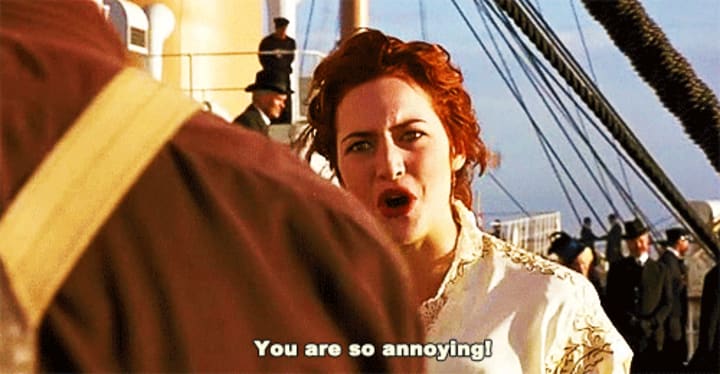
And that’s one problem about relationships that annoy you instead of breaking your heart: they tend to drag because after all, “it’s not that bad”, “nothing awful is happening” or “he/ she is sweet, but…” (emphasis on “but”). There are no huge deal breakers, no sensational events or quarrels to end things with a bang. Therefore, unless you are a very decisive person with an amazing sense of opportunity, you might find yourself lacking the impulse to break things off long past their “best before” date.
Now that’s the ghastly thing: you are not only settling because either you think nothing better will come along, or you’re too busy to find something better, or you are just comfortable (which gets you off the market preventing you from finding someone worthy). You are wasting time that you can never recover and ultimately, compromising your mental health.
Just because someone isn’t downright abusive, violent, a cheater, a narcissist, a con artist or an addict, that doesn’t mean they can’t be harmful. Worse even, some of these “good, but not good enough” people tend to be stage-ten clingers.
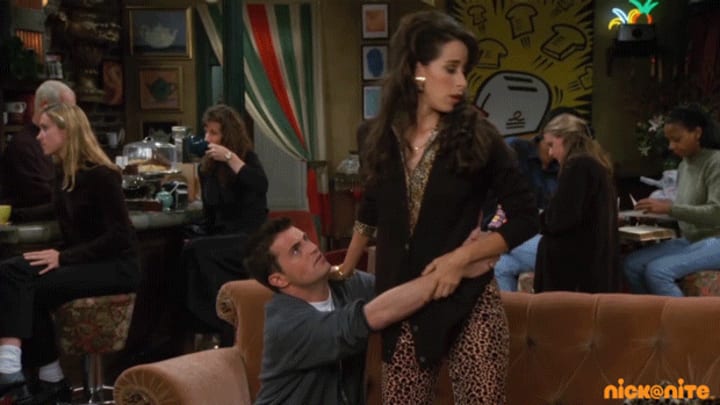
Take the case of my friend, let’s call her Jane. She is a fellow personal stylist (her profession is important here) kind of a socialite and sadly, too patient and nice for her own good. She was in her 20s, had just gotten out of a long term relationship and was planning on falling in love with a preppy gentleman who looked like a Ralph Lauren advert and had his life figured out; someone with whom she could have an elegant wedding soon enough, raise cute children and build a Pinterest ready lifestyle. She was working hard to build her ideal future and wanted someone who shared her work ethic, goals and fancy tastes.
While casually browsing for possibilities, she met Michael.
Michael was sweet, handsome and cultured — but not only he was a typical geek, and therefore not her type, he was far from having his life figured out. He kept dragging through university with all sorts of excuses, namely blaming the professors, destiny and the cruel world, and was not too keen on getting a job or even to work side hustles while he waited, either. Even so, Jane thought he was cute in a nerdy way and, being a bit of a bookworm herself, she felt a little casual dating and light fun couldn’t hurt. She ignored that big red flag because she didn’t want anything serious with him anyway.
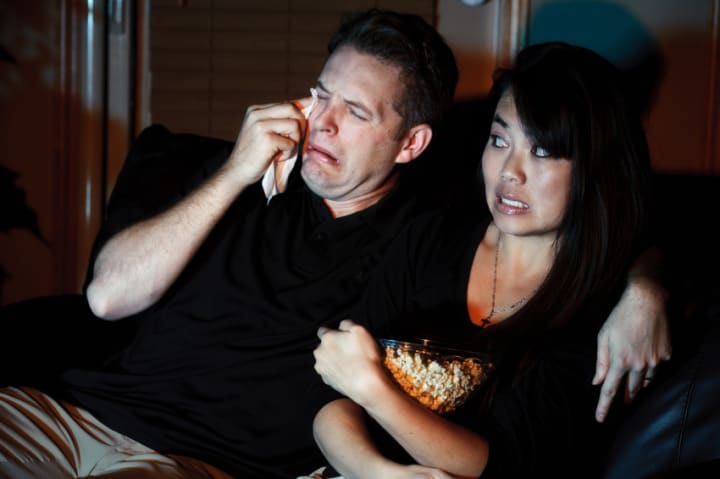
Well, big mistake: to cut the long story short, he clung to her like a tick. Like a lot of shy, awkward guys with little love experience out there, our Mikey was the kind of fellow that thinks himself madly in love the moment any pretty girl gives him hope. As soon as poor Jane told him that “they weren’t actually dating” and that she didn’t see any future in that liaison, he made a crying scene and begged so pathetically that even her friends and family, including her two alpha male brothers, pitied him because he was “such a nice guy and treats you so well”. So much for red flag number two!
And because red flags never lie and usually pile up, Michael (despite having a good heart and really adoring her) was the gift that kept on giving. For starters, his family was the root of his problems, a dysfunctional mess led by a neglecting, dominating mother who had turned Michael and his siblings into doormats. But despite complaining about it, Michael wouldn’t make a move to stand up to his parents, let alone to find his own place.
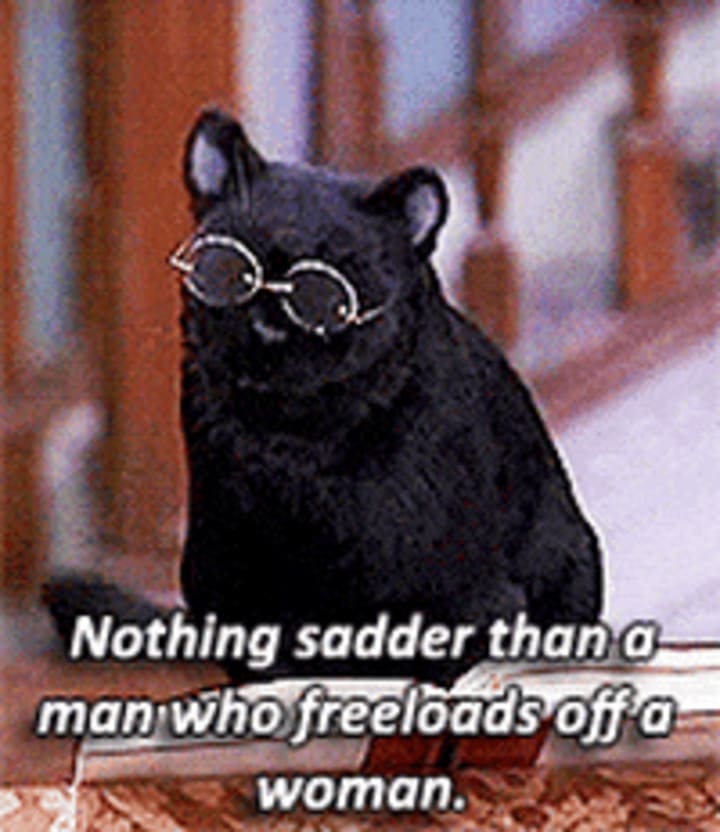
Such a lovely upbringing had taken his toll and as a result, Michael had zero social skills and terrible manners: he was cringy and obnoxious, embarrassing Jane several times in social settings; he was pretentious and a bit of a megalomaniac, like a Sheldon Cooper of sorts minus the genius (although he thought otherwise); he was lazy, unsupportive, permanently broke, would often “forget” his wallet and show up for dinner every evening uninvited, emptying the fridge if nobody stopped him, much to her family’s dismay.
And what really drove Jane crazy, he insisted (despite countless makeovers, advice and even gifts of clothing from an exasperated Jane) on dressing like Comic Book Guy from The Simpsons, not caring about jeopardizing Jane’s professional image or how mismatched they looked. Don’t get me wrong, I’m all about people’s freedom to despise style and dress as paupers if they please: but if one chooses to date someone who likes and needs to “look the part”, they must make an effort, compromise, find common ground… or leave to seek a more suitable match. Michael wanted to keep his cake and eat it too.

Worse even, when told off, he would get defensive; and on those occasions when Jane would lose her patience and try to break up, he’d cry, guilt trip her and pretty much manipulate his way back in. And Jane, who on one hand felt sorry for him and on the other was too busy hustling, let it linger on and on. Eventually, she stopped going out with Michael in public altogether.
It took years, a bit of growing, and two final episodes for my friend’s irritation to explode and set her free: first, one day his family was so unpleasant that she realised she could never be related to such types; and weeks later, he showed up at her job in full Comic Book Store Guy regalia, old shrunken t-shirt and all, after being warned against it a million times. The humiliation and disregard for her feelings were so overwhelming that my friend lost it and mercilessly broke up with him.
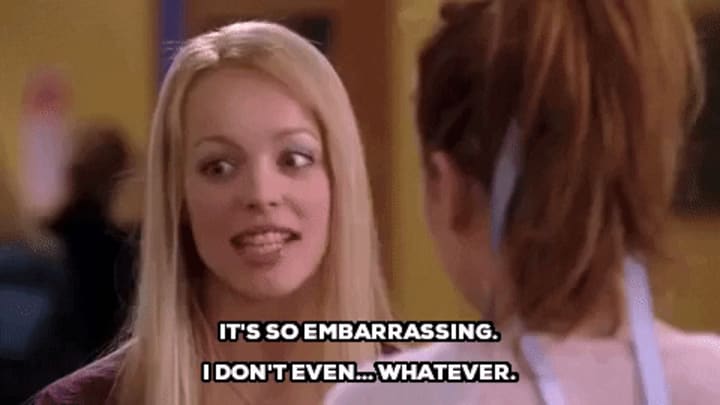
She was simply done with being manipulated by a selfish man-baby disguised as a good guy. Just because he didn’t fit the j*rk stereotype and didn’t have harmful intentions, at least at a conscious level, that didn’t make him less of a passive-aggressive piece of work. If someone ignores your warnings again and again they do not respect you, and that was exactly what he was doing.
Michael was so startled by her blunt outburst that there was nearly any room for his usual rhetorics.
And so he was gone at last-good riddance!
It was still too little too late, however; if Jane had acted upon her feelings of annoyance and never left room for argument; if she had allowed herself the right to walk away “just because” he was cringeworthy and irksome, she would have saved herself years of discomfort and lost opportunities. The moment she claimed that power back, his whining antics had no effect on her whatsoever. People know who they can play their tricks on!
For the sake of happiness and mental health, we should learn, and teach our children, that it’s OK to break up relationships, partnerships or friendships “just because”.

In our drama-hungry society, we are somewhat conditioned to equal ending a relationship with tragic, noisy, and adrenaline-filled situations, such as a cheating partner, domestic abuse or simply falling madly in love with somebody else and riding off to the sunset.
This romanesque approach is not new: my take is that in the European and American cultures at least, we inherited such handicaps from the Romantic movement. Love is supposed to be something so great that can only end for very strong reasons.
This is especially visible for those of us who share a southern European and Catholic heritage, because a) we love feelings and the more dramatic, the better (if you read the lyrics to Opera, Fado, or Flamenco you get a pretty good picture of this and b) breakups are bad for one’s reputation, especially if you are a woman, so you better have a darn good excuse. Obviously (supposing I’m right in my assumptions) these old-fashioned mental blocks all operate unconsciously, but they are there anyway.
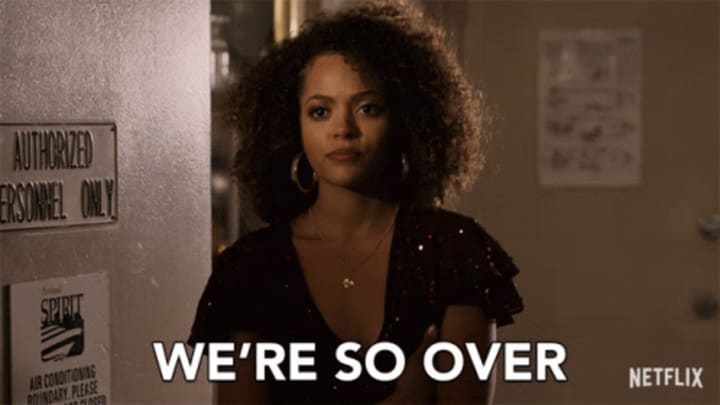
Moreover, they paradoxically contradict one of the most useful and rational philosophies about dating of the olden days (shared by Jane Austen, the Catholic Church and probably most of our grandmas): dating is not a destination but a trial period, a test to see if two people are compatible for an eventual lifelong commitment.
This was, by the way, one of the reasons people dated from afar back in the day — and that was usually only after the candidate was vetted by the family, who had previously conducted an FBI worthy investigation amongst their social circle. Such precautions weren’t just to safeguard the honour and virtue of maidens (and to save careless young gents from shotgun weddings with some floozy!). There was quite a pragmatic reason for that.
When dating was all about having long conversations, dancing in polite society, and writing love letters, without any physical involvement clouding one’s judgment, it was easier to observe impartially, test if characters were compatible, and detect red flags before getting emotionally attached. If that pretty face ended up being a monster, the disappointment wasn’t serious.
Modern romance mixed things up: we think we are in love before actually knowing that virtual stranger that well.
I dare to suggest a remedy for this dilemma, however:
First, before choosing a partner in the future, adopting a 21st-century version of good old-fashioned dating: there is no need to be a prude, but knowing each other well enough- purely as friends - before getting in romantic mode can’t hurt.
Second (and this applies to both pre or during dating) adopting a mix between:
1- A Jane Austenesque analytic approach: ask yourself- he/she is attractive, alright, but are we similar? Do I admire him/her? Would I be proud to introduce him/her to people whose opinion matters to me, or would I have to make excuses for him/her? Do I like his/her ways, manners, prospects, values, and goals? Do I feel at ease around him/her, or does it feel contrived? Do I laugh at their jokes spontaneously, do I like listening to their conversation, or do I struggle just to be polite? Is there anything unpleasant, cringeworthy, or that I totally disagree with about him/her?
2- The honest, unfiltered attitude of a child: children are unapologetic about who they like or not, and don’t need a reason for that. They act and speak on impulse. Believe your impressions and don’t reason too much. If you feel uncomfortable, sit on your own or with a trusted friend and try to verbalize everything that makes you feel that way in short sentences, like the little ones do: “I don’t like her because she is boring”, “I don’t like him because he swears too much”, or even “OMG, he is so lame”. Your feelings, however trivial, are valid and will tell you if you should stay or leave.
3- A business-like perspective: in business things are rarely personal, therefore people allow themselves to be precise, straightforward, and demanding in their standards. Dating shouldn’t be so different.
For instance, unless they are seeking interns, companies rarely hire or take business partners based on potential alone. Candidates must come ready to hit the ground running, or need just a little training on specifics.
When it comes to dating though, is very common for people to delude themselves falling in love with “diamonds in the rough”, hoping that they will eventually blossom into their Mr. or Ms. Right. Potential is a risky bet: human beings are not projects and that rough stone may never become a diamond, no matter how hard we polish it. It’s nobody’s job to teach, train, makeover, save or educate grown-backside adults who should be fully functional by now. Or if they are not, or simply don’t tick all your boxes, they must be set free so they can be happy in their own way…elsewhere, so that you’ll be free to choose based on “what you see is what you get” next time.
Now, when it comes to HOW to part ways with someone, the corporate world is also a great source of inspiration. Take any rejection letter for a job or business project: usually, it’s very polite, objective, and says something like “we don’t think we would be a good fit”. Simply put, “you are probably great, just not for us” (or for this role).
This is the golden key because it doesn’t demean or offend but it doesn’t put the blame on the partner who is doing the breaking up either, unlike the old jargon “it’s not you, it’s me”. Hell no, it’s not me — I’m entitled to my standards just as much as you are entitled to be….whatever you are. The approach is brilliant because it highlights that it’s nobody’s fault, there is nothing wrong with anyone, but it’s just not a good match.
If you feel that you’re done, you can try the “we’re not a good fit” script to walk away from a dead-end relationship.
Ideally, that should be enough. But most people require a bit more information when their feelings are hurt, and as we saw earlier, passive-aggressive partners tend to be clingy and eventually *demand* to know why.
That's when childish honestly comes to play. Give them one or two of the “minor”, but perfectly legit reasons you identified before, and be frank, short, and undiplomatic if needed be about them. For example:
“Since you insist on (name habit or behaviour) I DONT THINK WE ARE A GOOD FIT. You have every right to act/dress/speak as you please, but not to force it on me. Clearly, we are very different people and don’t work well as a couple”.
Or:
“Sorry but the way you behaved was embarrassing, unacceptable and I don't see me with someone who puts me through such situations. I DON’T THINK WE ARE A GOOD FIT and you need to find somebody who is OK with that sort of thing”.
Or even (if, like in Jane’s case, their family is a real deal-breaker):
“Sorry but I really don’t like being around your family. I’m sure they are lovely people in their own way but we are very different and can’t see it working in the long term. I DON'T THINK WE ARE A GOOD FIT: I need to build a life with someone who has a background more similar to my own”.
Well, you get the idea. Use such sentences promptly after another mortifying, tiresome, infuriating, or frustrating scene- don’t let it cool off. Remember, with such people, anger is the key to freedom.
Allow no tears, no guilt-tripping, be firm, and walk away before you get all tangled in their arguments. Remember that emotional blackmail is just another form of abuse, no matter how sugar-coated it can be.
And that’s it- a bit of bluntness should deal with the wolf in fluffy sheep’s clothing and allow you to claim your life back. Ta ta now!
About the Creator
SissiMM999
Blogger, Fashion stylist, History geek, Mum, marketer, storyteller and artist. I write about History, Style, Fashion, Society, Culture, Relationships, etc






Comments
There are no comments for this story
Be the first to respond and start the conversation.